Recent studies have explored promising insights: watermelon may offer a natural alternative to combat erectile dysfunction (ED), mirroring the effects of pharmaceutical treatments such as Viagra.
The introduction of Viagra and similar ED medications marked a significant advancement in men’s health, providing relief to many individuals facing challenges due to various health conditions or aging. However, for some, these pharmaceutical options bring challenges, including side effects or conflicts with existing heart conditions.
In this modern time, a slice of watermelon might be more than just a summertime treat – it could also be a gentle, natural way to address erectile dysfunction (ED). This familiar and easily available fruit is gaining attention as a potential alternative for those seeking solutions beyond traditional ED medications. With no side effects to worry about, watermelon is emerging as an interesting option for people looking for other ways to manage ED. The research into how watermelon could help is sparking curiosity, presenting it as a viable, natural choice for enhancing sexual health without the complications of standard drugs.
You should also read the following articles:
- Will Quitting Alcohol Increase Testosterone? Affects and more.
- Does Sleeping Naked Increase Testosterone? Unveiling the Truth.
- Essential Oils for Sex Drive: Your Natural Aphrodisiac Solution.
Is Watermelon Good for Erectile Dysfunction?
Yes, watermelon could be beneficial for erectile dysfunction (ED). This fruit is a natural source of citrulline, an amino acid that might help improve erections.
Just like Viagra, which boosts blood flow to the penis to help a man get an erection when he’s excited, citrulline might work in a similar way, but it takes a different path than Viagra does.
Early studies suggest that our bodies can change citrulline into another amino acid called arginine. Arginine then becomes nitric oxide, which makes the blood vessels open up wider. This means more blood can flow to the penis, which can lead to better erections.
Note: Keep in mind, the idea of using watermelon for ED is still pretty new and based on early research. More information needed to be validated before including it into your diet.
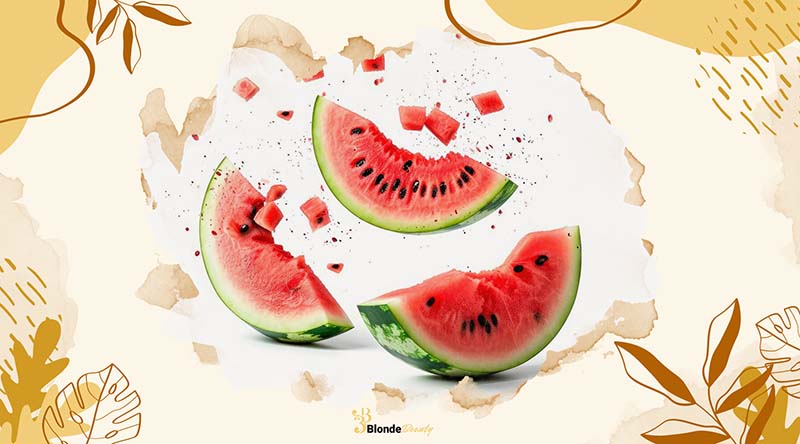
The Nutritional List of Watermelon
Watermelon is not merely a delightful summer refreshment; it is also a nutrient-rich, low-calorie food that offers a myriad of health benefits.
A single cup of watermelon provides:
- Only 46 calories
- 12 grams of carbs
- 865 international units (IU) of vitamin A (which is about 0.26 milligrams)
- 12 milligrams of vitamin C
- 170 milligrams of potassium
- 0.1 milligrams of vitamin B6
- And it has no fat, cholesterol, or sodium
These nutrients play crucial roles in maintaining optimal health. Vitamin A is vital for skin and eye health, while vitamin B6 is essential for protein metabolism, immune function, and neural operations. Vitamin C is known to enhance immune defense and facilitate iron absorption. Potassium contributes to cardiovascular health by aiding in blood pressure management and is imperative for proper nerve function.
Sexual Health Benefits That Watermelon Brings to Your Body
Watermelon isn’t just a refreshing summer treat; it’s also packed with sexual health benefits for both men and women. Here’s how this juicy fruit can spice up your love life and contribute to overall well-being:
Increases Sexual Desire
Rich in antioxidants like lycopene and beta-carotene, watermelon can help improve hormone balance, which is essential for maintaining a healthy libido.
This benefit is universal, enhancing the sex drive of both genders.

Improves Blood Flow
Watermelon is great for heart health, as it can lower blood pressure. The potassium found in watermelon makes blood vessels more flexible, which enhances blood flow and reduces strain on the heart.
Moreover, watermelon can prevent the hardening of artery walls, decrease the risk of blood clots, strokes, and heart attacks, making it more than just a natural substitute for Viagra but also a fruit with wide-ranging health advantages.
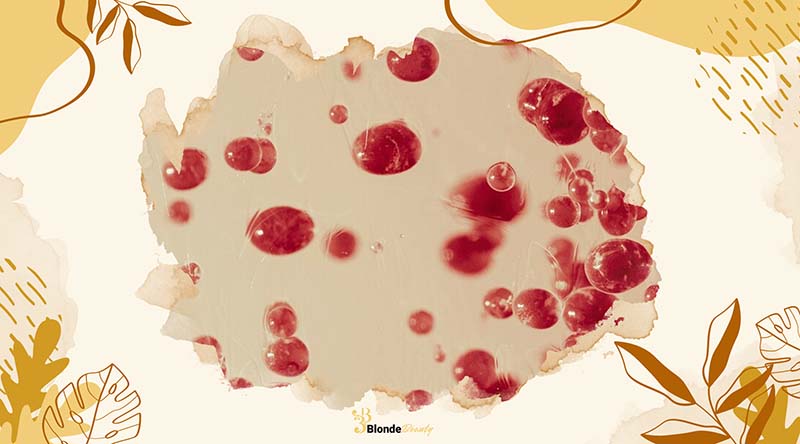
Reduces Stress
High stress levels can negatively impact sexual health. Watermelon may lower stress thanks to its magnesium and potassium content, which are known to soothe nerves.
The high water content in watermelon also keeps you hydrated, potentially boosting your mood and reducing anxiety.

Helps Reduce Blood Pressure
The L-citrulline in watermelon can aid in lowering blood pressure by increasing the production of nitric oxide, which widens blood vessels and enhances blood flow.
This makes watermelon particularly beneficial for individuals with hypertension, although further extensive research is needed.
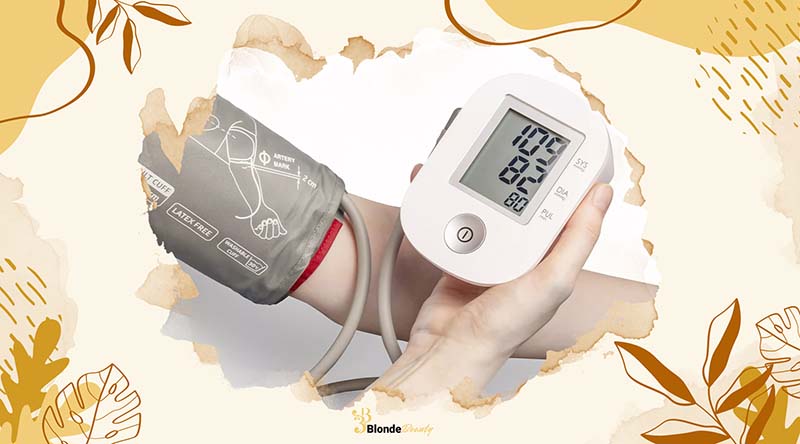
Strengthens the Digestive System
The fiber and water content in watermelon play a significant role in promoting a healthy digestive system. Proper digestion and regular bowel movements are essential for the efficient absorption of nutrients necessary for overall health, including sexual health.
A well-functioning digestive system ensures that the body maximizes the benefits received from all consumed foods, including those critical for sexual health and energy levels.
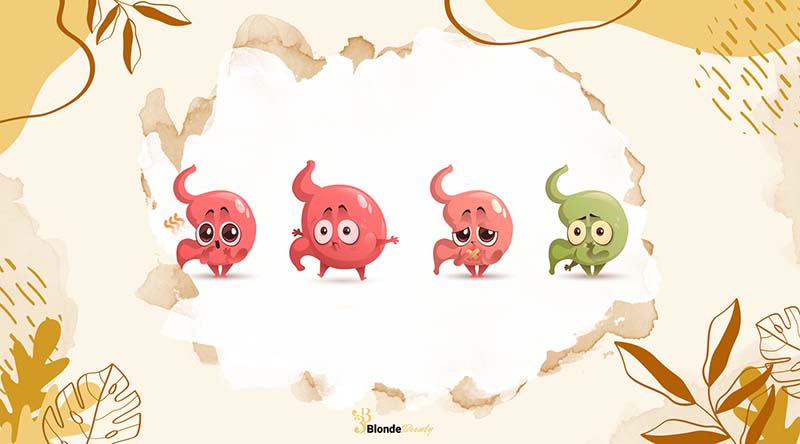
Enhances Exercise Performance
The L-citrulline in watermelon not only benefits blood flow and blood pressure but also has implications for physical performance and recovery. Improved oxygen supply to muscles and enhanced blood flow can lead to increased stamina and reduced muscle fatigue, which are beneficial for overall physical activity and, by extension, sexual stamina and performance.
Incorporating watermelon into your diet not only brings a splash of sweetness to your meals but also offers numerous health benefits, including improved sexual health and physical performance.

Who Shouldn’t Eat Too Much Watermelon?
While watermelon is generally safe and healthy for most people, there are a few situations where you might want to limit your intake or eat it with caution.
People with pollen allergies, especially to grass pollen, might want to be careful. This is because of something called oral allergy syndrome (OAS). OAS can happen when someone who’s allergic to pollen eats certain raw fruits or vegetables, and watermelon can be one of those triggers. The reactions are usually mild, like a skin rash, but in rare cases, it could cause more serious issues, such as trouble breathing.
During grass allergy season, if you know you’re sensitive, it might be wise to watch how much watermelon you eat to avoid any allergic reactions. Also, if you have asthma, it’s a good idea to talk to your doctor before adding new supplements to your diet or heavily relying on foods like watermelon that could potentially trigger OAS.
Is It Okay to Eat a lot of Watermelon?
Eating watermelon is a delightful way to hydrate and nourish your body, thanks to its high water content and essential nutrients. However, indulging in too much watermelon might not be the best idea for everyone.
If you eat a lot of watermelon, you could end up with higher blood sugar levels because of the fruit’s natural sugars. Plus, for those sensitive to FODMAPs (a group of carbohydrates that can cause stomach issues in some people), watermelon might lead to gastrointestinal discomfort, like bloating or gas.
The key here, as with most foods, is balance. While there’s no strict limit on how much watermelon you can eat, a good guideline is to keep your watermelon consumption to about 2 cups (or roughly 300 grams) per day if you’re not eating a lot of other fruits. This approach helps you enjoy the benefits of watermelon without overdoing it.
How to Properly Include Watermelon in Your Diet
If raw watermelon isn’t your type, there are plenty of creative ways to weave this juicy fruit into your meals and snacks, making your diet both flavorful and nutritious:
- Watermelon Smoothie Kick off your day or cool down with a watermelon smoothie that’s not only tasty but also rich in vitamins and packed with the goodness of antioxidants. Adding Greek yogurt gives you a probiotic boost. Simply blend together watermelon pieces, a handful of ice, a splash of lime juice, and some fresh mint leaves for a zesty, revitalizing drink.
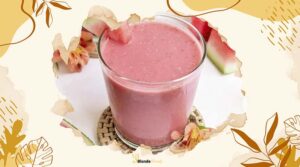
- Watermelon Salad For a dish that perfectly captures the essence of summer, try a watermelon salad. Its juicy sweetness pairs wonderfully with the sharpness of feta cheese and the cool, fresh mint, creating a delightful mix of flavors. Toss together chunks of watermelon, diced cucumber, crumbled feta cheese, and mint leaves for a refreshing side dish or a light lunch option.
- Grilled Watermelon: Boost your BBQ by grilling watermelon slices. It might sound quirky, but grilling watermelon enhances its natural sweetness with a smoky flavor, creating a unique side dish or a dessert option. Simply slice the watermelon into thick pieces, grill them for a short time on each side, and then season with a sprinkle of salt and a little olive oil.
- Watermelon Salsa For a fruity twist on a classic, whip up some watermelon salsa. It’s an excellent companion for tortilla chips or a vibrant marinade for grilled meats. The sweet watermelon cubes contrast beautifully with the fiery jalapeño and the cool cilantro, offering a tantalizing blend of flavors. Mix diced watermelon with chopped tomatoes, red onion, jalapeño, cilantro, and a squeeze of lime for a dip that’s sure to impress.
- Watermelon Sorbet Enjoy a sweet, frosty dessert without dairy by making watermelon sorbet. This frozen treat is easy to make, plus it’s vegan and gluten-free, making it perfect for everyone. Just puree watermelon in a blender, freeze it, and enjoy a healthy, delicious sorbet. For those looking for guidance, searching online for a watermelon sorbet recipe can provide a simple step-by-step process to achieve the perfect consistency for this refreshing dessert.
Incorporating watermelon into your diet through these inventive dishes not only diversifies your meal plan but also ensures you’re getting a healthy dose of hydration and nutrients in a deliciously fun way.
Conclusion
Watermelon is much more than a source of hydration; it’s packed with L-citrulline and antioxidants, offering significant health benefits. These include improving blood flow, increasing libido, and maintaining hormonal balance, which are essential for sexual health. Additionally, watermelon aids in enhancing physical performance and overall health, making it a significant addition to a balanced diet.
The integration of watermelon or watermelon-based supplements into one’s daily diet, coupled with guidance from healthcare professionals, can significantly benefit sexual health and overall quality of life. The value of watermelon extends well beyond its taste, serving as a key to unlocking a plethora of health benefits rooted in its natural, nutrient-rich composition.
For more insightful articles on health and wellness, be sure to explore additional blogs from Blonde Beauty.

Laureate Professor Clare Collins
Professor Clare Collins is a leading expert in nutrition and dietetics at the School of Health Sciences, part of the College of Health, Medicine and Wellbeing. Her work is changing the way we think about food and health. She grew up as one of nine children and was the first in her family to finish high school and go to college. This background gave her a strong work ethic and a deep appreciation for seizing opportunities.
As the Director of the Hunter Medical Research Institute’s Food and Nutrition Program and a recipient of three NHMRC Research Fellowships, Professor Collins is making a big difference in public health. She focuses on helping people who are often overlooked, using new technologies like apps and online programs to improve their nutrition and reduce the risk of chronic diseases.
Professor Collins is well-respected and has been recognized as a Fellow in four major health and science organizations. She leads a diverse team of experts, including dietitians, computer scientists, and engineers, working together on global health projects.
Her achievements are impressive. She has received over $29 million in research funding, published more than 450 papers, and helped 35 PhD and Master’s students complete their degrees. She’s also active in sharing her knowledge with the public. She has developed tools like the Australian Eating Survey and the Healthy Eating Quiz, and she often appears in the media to talk about nutrition.
PUBLISHED ARTICLES
- Collins, C. (2019). “The Effect of a Pilot Dietary Intervention on Pain Outcomes in Patients Attending a Tertiary Pain Service.”
- Collins, C. (2022). “Variation in cardiovascular disease risk factors among older adults.”
- Collins, C. (2022). “Evaluation of an online intervention for improving stroke survivors’ health-related quality of life: A randomised controlled trial.”
These articles show Professor Collins’s commitment to understanding how better nutrition can improve health. Her work is important for researchers, doctors, and anyone interested in healthy living.
